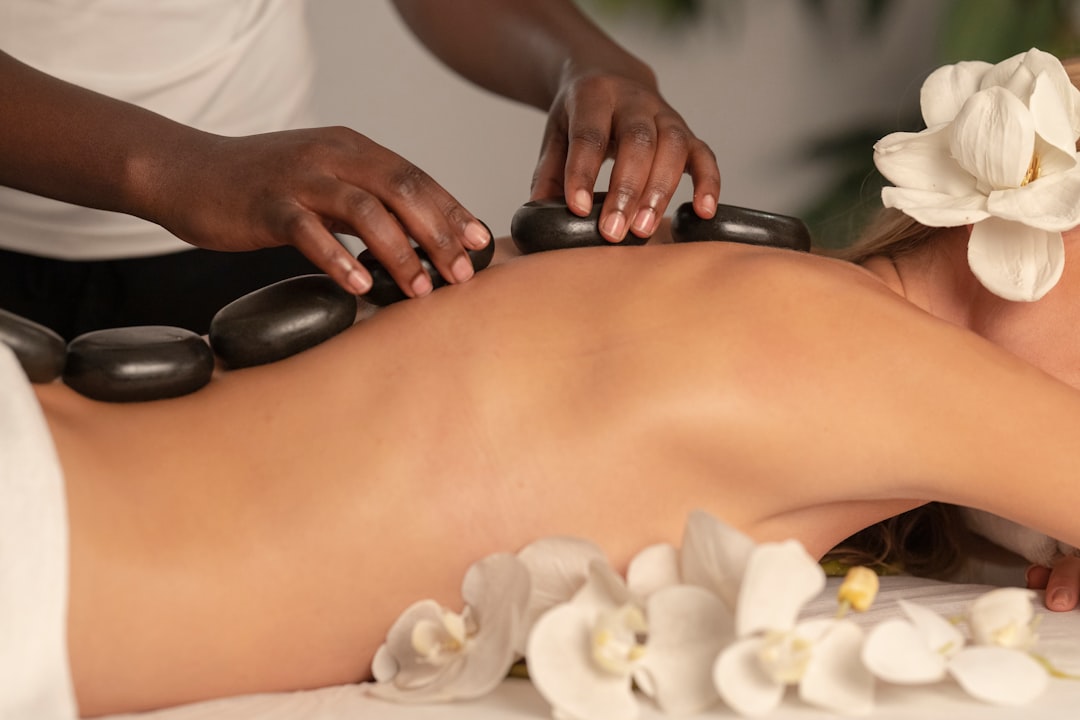Client safety in New York City's wellness sector is paramount, with strict regulations targeting massage sexual assault. Lawyers specializing in this area guide businesses through state laws and industry standards. Both therapists and clients have responsibilities: therapists must be trained to recognize and report suspicious behavior, while clients should understand their rights. A collaborative effort between professionals, advocates, and legal experts is crucial for strengthening client safety, particularly with the help of massage sexual assault lawyers in New York. This includes stricter regulations, improved staff training, and enhanced monitoring to prevent and address assaults, ultimately creating a safer environment within NYC's wellness industry.
“The wellness industry in New York City, particularly the massage therapy sector, is governed by critical client safety regulations. However, navigating these rules presents unique challenges for both practitioners and authorities. This article delves into the intricate web of safety measures, policy enforcement gaps, and legal rights for massage therapists in NYC. By exploring the current landscape, we uncover areas for improvement and advocate for policy changes aimed at preventing sexual assault, ensuring client protection, and fostering a safer wellness environment across the city.”
Understanding the Scope of Client Safety Regulations in NYC's Wellness Industry
In New York City, client safety regulations within the wellness industry are pivotal to protecting individuals from potential harm. These regulations encompass a wide range of practices, including massage therapy, spa treatments, and fitness classes. The primary objective is to prevent any form of misconduct or exploitation, especially in light of concerns related to massage sexual assault. Lawyers specializing in this area play a crucial role by ensuring that businesses comply with state laws and industry standards.
Understanding the scope of these regulations is essential for both wellness industry professionals and clients. Massage therapists and other service providers must be trained in recognizing and reporting suspicious behavior, maintaining appropriate boundaries, and implementing safety protocols. Clients, on the other hand, should be aware of their rights and feel empowered to seek legal counsel if they encounter any unethical practices or suspect a violation of client safety regulations. This collaborative effort between professionals and consumers is vital to fostering a secure environment within NYC’s wellness industry.
The Current Landscape: Challenges and Gaps in Policy Enforcement
The wellness industry in New York City, a bustling metropolis known for its vibrant spa and massage culture, faces significant challenges when it comes to client safety regulations. Despite efforts to protect patrons from potential harm, there are notable gaps in policy enforcement that leave individuals vulnerable. One pressing issue is the lack of comprehensive legal frameworks addressing sexual assault within wellness settings, such as spas and massage therapies. In a city like New York, where tourists and locals alike frequent these establishments, ensuring client safety takes on added importance.
Massage sexual assault lawyers in New York play a crucial role in advocating for policy changes to address these gaps. They highlight the need for stricter regulations, improved training for staff, and enhanced monitoring to prevent and respond to potential assaults. The current landscape suggests that a more robust legal framework is necessary to protect clients, hold businesses accountable, and foster a safer environment within NYC’s wellness industry.
Legal Framework: Massage Therapists' Rights and Client Protection Laws in New York
In New York City, massage therapists operate within a specific legal framework that combines state and local regulations to protect both clients and practitioners. The laws surrounding client safety are designed to prevent any instances of massage sexual assault, ensuring a secure environment for all involved. According to New York State law, massage therapists are required to obtain a license from the New York State Department of Health, which includes strict adherence to ethical guidelines and safety protocols. These regulations cover various aspects, including consent procedures, client privacy, and reporting obligations in case of suspected abuse or misconduct.
Additionally, local laws in NYC provide further safeguards for clients. Massage therapists must adhere to city-specific rules that prohibit any form of sexual harassment or assault within the profession. In the event of a breach of these regulations, qualified massage sexual assault lawyers in New York NY can offer guidance and legal recourse to affected parties. Their expertise ensures that client rights are protected, and perpetrators face appropriate consequences under the law.
Strategies for Advocating Change: Engaging Stakeholders and Building Alliances
Advocating for policy changes in NYC’s wellness industry, particularly regarding client safety, requires a strategic approach that involves engaging key stakeholders and building alliances. First, identify and connect with like-minded organizations and professionals within the industry who share your concerns about enhancing safety measures. Collaborate with local advocacy groups, non-profits, and even massage therapy schools to raise awareness and gain support for proposed changes.
Utilize the expertise of massage sexual assault lawyers in New York, NY, who specialize in these matters. Their insights can help shape effective campaigns and ensure legal compliance. By fostering partnerships across sectors, you can amplify your message and create a powerful movement that pushes for much-needed policy reforms, ultimately making NYC’s wellness industry safer for all clients.
Potential Policy Reforms: Enhancing Safety Measures and Ensuring Compliance
In advocating for policy changes within NYC’s wellness industry, a key area of focus should be enhancing safety measures and ensuring compliance to protect clients from potential risks, especially in light of concerns regarding massage sexual assault. Reform efforts can include mandating rigorous background checks for all staff, implementing secure client-therapist communication channels, and establishing clear guidelines for professional boundaries during treatments. These reforms aim to create a safer environment by holding wellness businesses accountable for their operations and fostering trust among clients.
Moreover, policy changes should mandate regular training sessions on consent, awareness of non-verbal cues, and appropriate physical touch for all practitioners. By integrating these safety protocols into industry standards, massage therapists and other wellness professionals in New York City can better identify and deter potential sexual assault incidents while upholding ethical practices. This proactive approach not only ensures the well-being of clients but also strengthens the reputation of the city’s wellness industry by promoting a culture of safety and respect.





